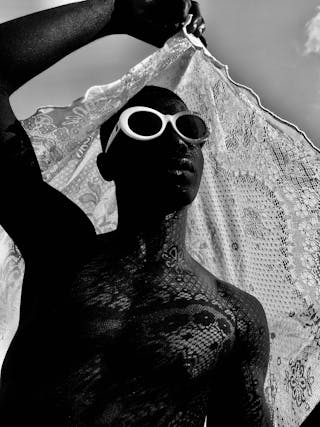The topic of whether or not it is acceptable to not want to date a bisexual man is a complex and often contentious issue. There are many factors to consider, including personal preferences, societal norms, and the potential for discrimination. In this article, we will explore the various perspectives on this topic and examine the implications of not wanting to date a bisexual man.
So you're looking for a new love interest, but you're not sure about dating someone who is bisexual. It's a common dilemma, and there are valid concerns on both sides. But before you make up your mind, it's worth considering the unique qualities that bisexual men bring to a relationship. It's all about finding the right fit for you, and that might just be someone who defies traditional labels. If you're curious to explore your options, check out this comparison of AdultFriendFinder and Tinder dating apps to broaden your horizons.
Understanding Bisexuality
If you're looking to explore the BDSM scene in Portland and find kinky dating opportunities, check out this helpful guide for tips and recommendations.
Before delving into the question of whether it is acceptable to not want to date a bisexual man, it is important to first understand what bisexuality is. Bisexuality refers to the sexual attraction to both men and women. It is a valid and natural sexual orientation that is present in a significant portion of the population.
Unleash the power of ownership in BDSM and explore a new level of pleasure and control in your relationships.
Bisexual individuals are often subject to stigma and discrimination, both within the LGBTQ+ community and in broader society. They may face invalidation of their identity, assumptions about their promiscuity, and challenges in finding acceptance and support. Given these challenges, it is crucial to approach the topic of dating bisexual men with sensitivity and empathy.
Discover alternative dating sites similar to Happn that could expand your options and increase your chances of finding a compatible match.
Personal Preferences
One of the primary factors that may influence a person's decision to not want to date a bisexual man is their personal preferences. Just as individuals have their own specific preferences when it comes to physical appearance, personality traits, and hobbies, they may also have preferences regarding their partner's sexual orientation.
Some individuals may feel more comfortable and secure in a relationship with someone who shares their sexual orientation. They may have specific experiences, values, and expectations that align with those of individuals who identify as heterosexual. Additionally, some individuals may have concerns about the potential for infidelity or confusion in a relationship with a bisexual man.
It is important to recognize that personal preferences are valid and should be respected. People are entitled to pursue relationships that align with their own desires and comfort levels. However, it is also important to consider the potential impact of these preferences and whether they may be rooted in societal biases or misconceptions about bisexuality.
Societal Norms and Stereotypes
The decision to not want to date a bisexual man may also be influenced by societal norms and stereotypes surrounding bisexuality. Bisexual individuals are often subjected to harmful stereotypes, including assumptions that they are untrustworthy, promiscuous, or incapable of committing to a monogamous relationship. These stereotypes can contribute to feelings of discomfort or unease when considering a relationship with a bisexual man.
Furthermore, societal norms and expectations regarding relationships and masculinity may also play a role in shaping attitudes towards dating bisexual men. Some individuals may feel pressure to conform to traditional notions of masculinity and may worry about how dating a bisexual man could impact their own identity and social standing.
It is essential to critically examine and challenge these societal norms and stereotypes. Bisexual individuals should be afforded the same respect, acceptance, and opportunities for love and connection as anyone else. By interrogating and dismantling harmful stereotypes, we can create a more inclusive and equitable dating landscape for all individuals.
Intersectionality and Discrimination
Another important consideration when discussing the topic of not wanting to date a bisexual man is the intersectionality of discrimination. Bisexual individuals, particularly those who are also members of other marginalized groups, may face compounded forms of discrimination and oppression.
For example, bisexual men of color may experience racism, biphobia, and homophobia simultaneously. They may encounter barriers to dating and forming meaningful connections due to the intersection of these multiple forms of discrimination. It is crucial to recognize and address these intersecting forms of marginalization in discussions about dating preferences and inclusivity.
Ultimately, the decision to not want to date a bisexual man is a deeply personal one. It is essential to approach this topic with empathy, understanding, and a commitment to challenging harmful stereotypes and societal biases. By fostering open and honest conversations about bisexuality and relationships, we can work towards creating a more inclusive and affirming dating culture for all individuals.
- https://location-dating.ua-sex.com/posts/dating-with-purpose-setting-relationship-goals/
- https://dating-app.thehottieandthenottie.com/posts/bath-sex-bathroom-sex-tips/
- https://matchmaker.ua-sex.com/posts/the-dating-vibes-are-off-right-now/
- https://online-sex.getweps.com/posts/my-best-sex-ever-was-a-quickie-with-a-complete-stranger/
- https://datingguide.thehottieandthenottie.com/posts/best-sex-toy-advent-calendars-for-2023/
- https://dating-app.getweps.com/posts/polyamory-diaries-16-i-kiss-her-while-my-wife-watches/
- https://online-sex.getweps.com/posts/5-sex-positions-for-balls-how-to-stimulate-testicles-during-sex/
- https://fuck-apps.getweps.com/posts/dating-trends-for-2024-from-apps-to-the-death-of-having-a-type/
- https://dating-app.ua-sex.com/posts/a-guide-to-protecting-your-mental-health-when-dating/
- https://sex-app.campsupernow.com/posts/threesome-positions-6-best-threesome-sex-positions/
- https://matchmaker.timebombrecordings.com/posts/what-tiktok-dating-wrapped-says-about-our-love-lives-in-2022/
- https://hookupguide.ua-sex.com/posts/my-best-sex-ever-was-with-my-best-friends-ex/
- https://online-dating.getweps.com/posts/ditching-the-dating-apps-can-we-still-find-love-irl/
- https://dating-blog.timebombrecordings.com/posts/bath-sex-bathroom-sex-tips/
